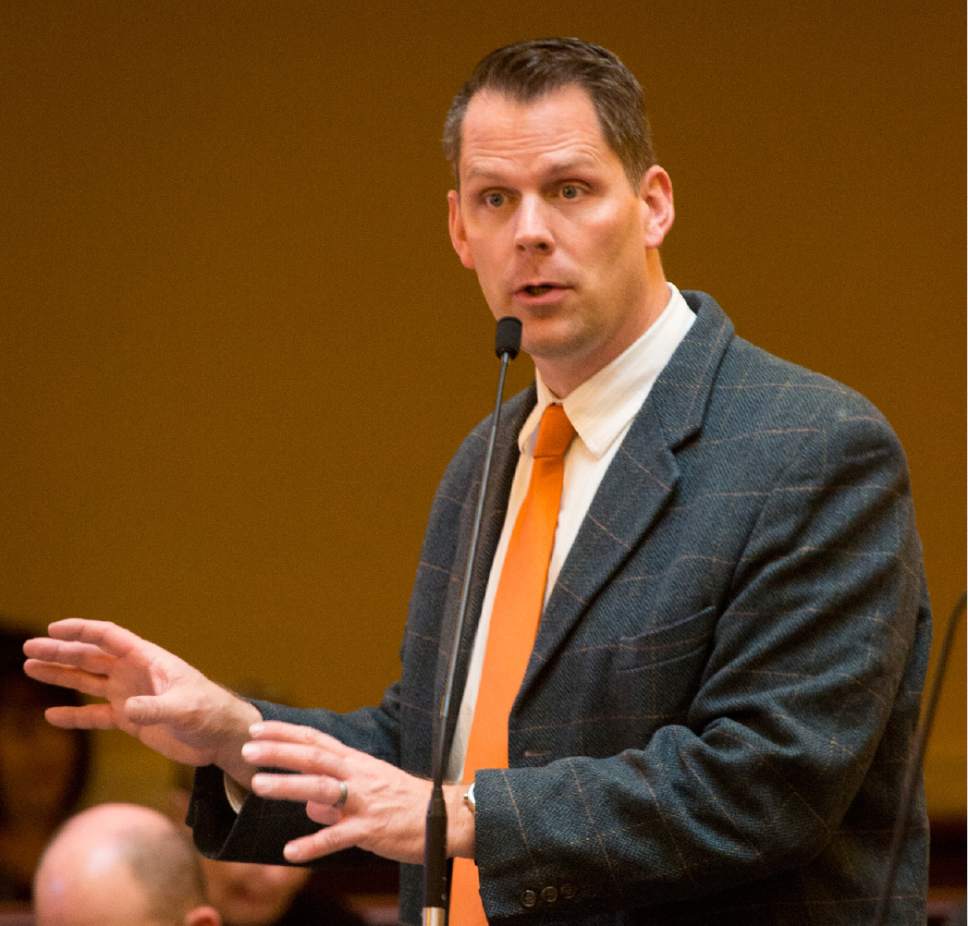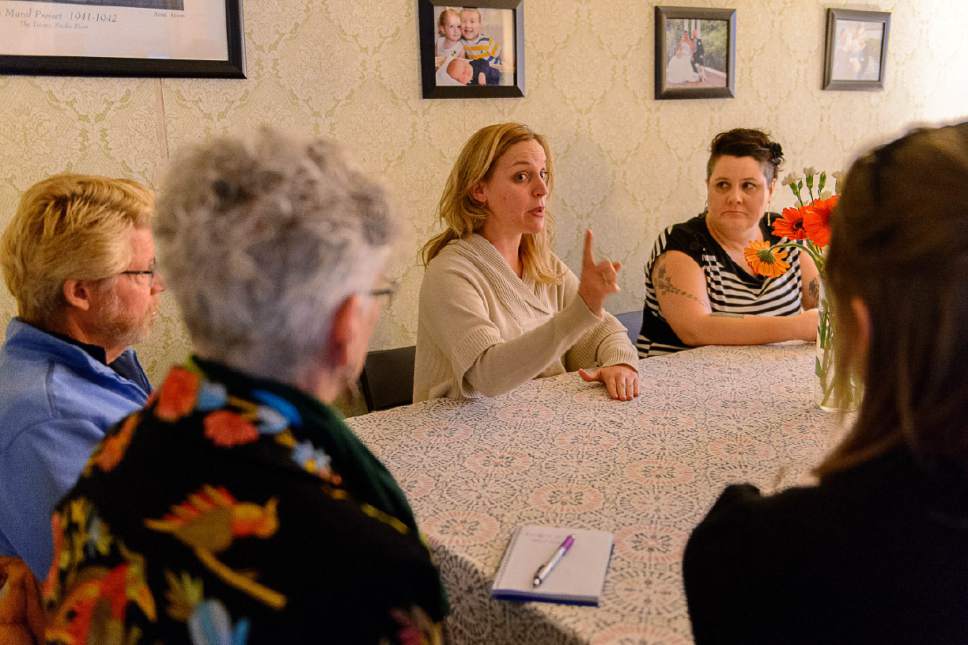This is an archived article that was published on sltrib.com in 2017, and information in the article may be outdated. It is provided only for personal research purposes and may not be reprinted.
Sen. Jacob Anderegg, R-Lehi, received some unexpected free publicity for his proposed equal-pay legislation this week.
In a Valentine's Day letter to the editor of the Wasatch Wave, Wasatch County Republican Party co-Chairman James Green wrote in opposition to Anderegg's bill, SB210. Paying women the same as men would drive down male salaries, the letter said, creating a "vicious cycle" that forces mothers into the workforce, harming families and society.
"Traditionally men have earned more than women in the workplace because they are considered the primary breadwinners for families," Green wrote. "They need to make enough to support their families and allow the Mother to remain in the home to raise and nurture the children."
The backlash was swift and severe, prompting Green to resign his party post Friday after his letter was shared through social media, picked up by national news outlets, and rebuked by fellow Utah Republicans.
"I am shocked and appalled to learn how James Green feels about equal pay for women," Rep. Tim Quinn, R-Heber City, said in a prepared statement. "I don't know where this belief came from."
Anderegg said Friday he does not agree with Green's opinion. It is a different era, Anderegg said, in which traditional family structures don't always apply and in which many women, for various reasons, act as a primary or additional breadwinner.
"I think a person's performance is the true factor of how they should be compensated," he said. "Not their gender."
But beyond the difference in philosophy, Anderegg said Green's viral letter missed an important aspect of SB210 — it doesn't mandate that women be paid the same as men.
While Anderegg supports the principle of egalitarian pay, independent of gender, he said the debate over Utah's pay gap has relied too heavily on anecdotal information.
People on both sides of the issue use similar data to either identify a wage gap or dismiss the disparity as a myth, he said, making it difficult for lawmakers — and particularly Republicans — to step into the issue with the "heavy hand of government."
"Good data is going to drive the issue with my conservative colleagues," he said.
His bill is an attempt to reach consensus on the size, severity and causes of Utah's gender pay disparity. It calls for the launch of a study into Utah salaries and the creation of a pay index in order to inform future discussions on whether the problem exists and how big it is in the state.
"We need to have Utah numbers, Utah data and put the question to bed," Anderegg said. "Then we can address it."
Lavinia Taumoepeau-Latu, policy chair for the advocacy group Utah Women Unite, said the bill is "long overdue."
"If we're working the same job as a man, why should we get paid less?" she said. "We're coming out [of college] equal, but when we're going into the workforce we're basically being discriminated against for being a woman."
But Joanna Smith, Utah Women Unite's executive director, was mixed in her response to Andregg's bill.
She commended the senator for moving the equal pay issue forward, but was critical of the overall politics in Utah that require such tentative and incremental progress.
"I recognize the climate we're in," she said. "Baby steps are beautiful steps too."
She said the central premise of the bill, that a pay gap may or may not exist, is flawed. Not only is there a pay disparity for Utah women, she said, but it is one of the worst in the United States.
"There's a lot of factors for that, but we know that women in Utah have a huge pay gap," she said. "If the ultimate goal is to have equal pay then let's just get there."
Among those factors, often cited by equal pay opponents, is the idea that women's salaries are the result of market forces rather than institutionalized discrimination. Female workers self-select low-paying careers, the argument goes, take extended leave for childbirth and are less aggressive at requesting raises than their male colleagues.
Smith said such reasoning ignores the traditional limits placed on women, which manifest in the pay disparity as more female workers pursue jobs outside the home.
"Men are free to choose how they would like to live their life," she said. "Women should be as well."
And just because a woman agrees to take a job for less pay than a man would, Smith said, does not suggest that market forces are working as they should.
"They have to feed their kids," she said. "So if they take a tiny bit, at least they can feed their kids a tiny bit. That's not justification to treat them as 'less than.' "
The indexes created by his bill, Anderegg said, will give workers a better idea of what the typical pay range is for different industries at their level of education and experience.
That's empowering for both men and women, he said, but it is not the role of government to negotiate salary on their behalf.
"I think people still need to go in and know their value and share their value and demand their value," he said. "They still have to go sell themselves."
His bill is currently awaiting an initial hearing by the Senate Business and Labor Committee.
Reached by email, Green declined to comment to The Tribune. He provided a second letter he planned to submit to the Wasatch Wave in which he walks back some of his comments.
"Women's contributions in the workplace are just as valuable as any one else's," Green wrote. "I was merely pointing out the historical reasons for pay disparity and the challenges of overcoming that."
bwood@sltrib.com Twitter: @bjaminwood







